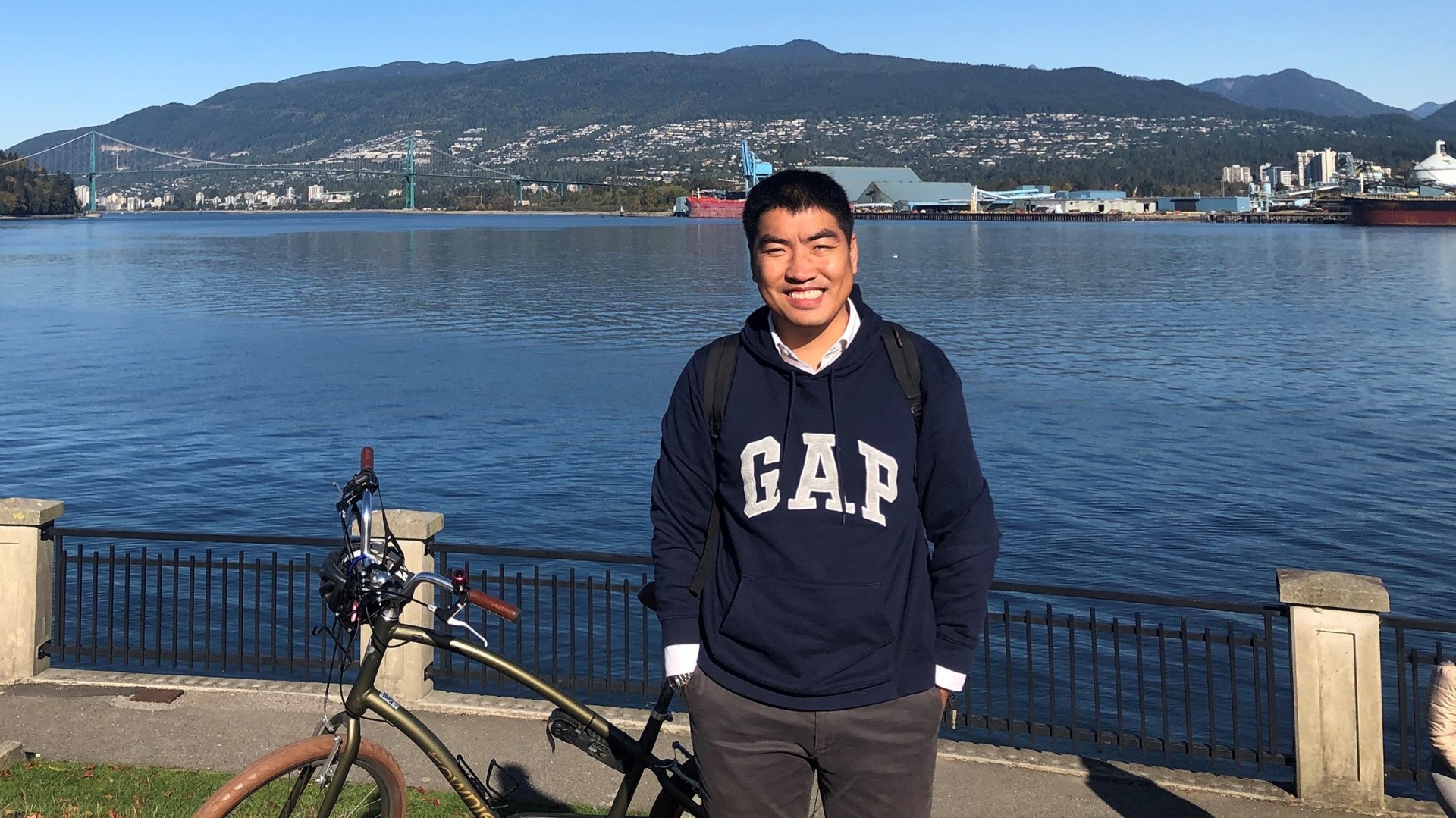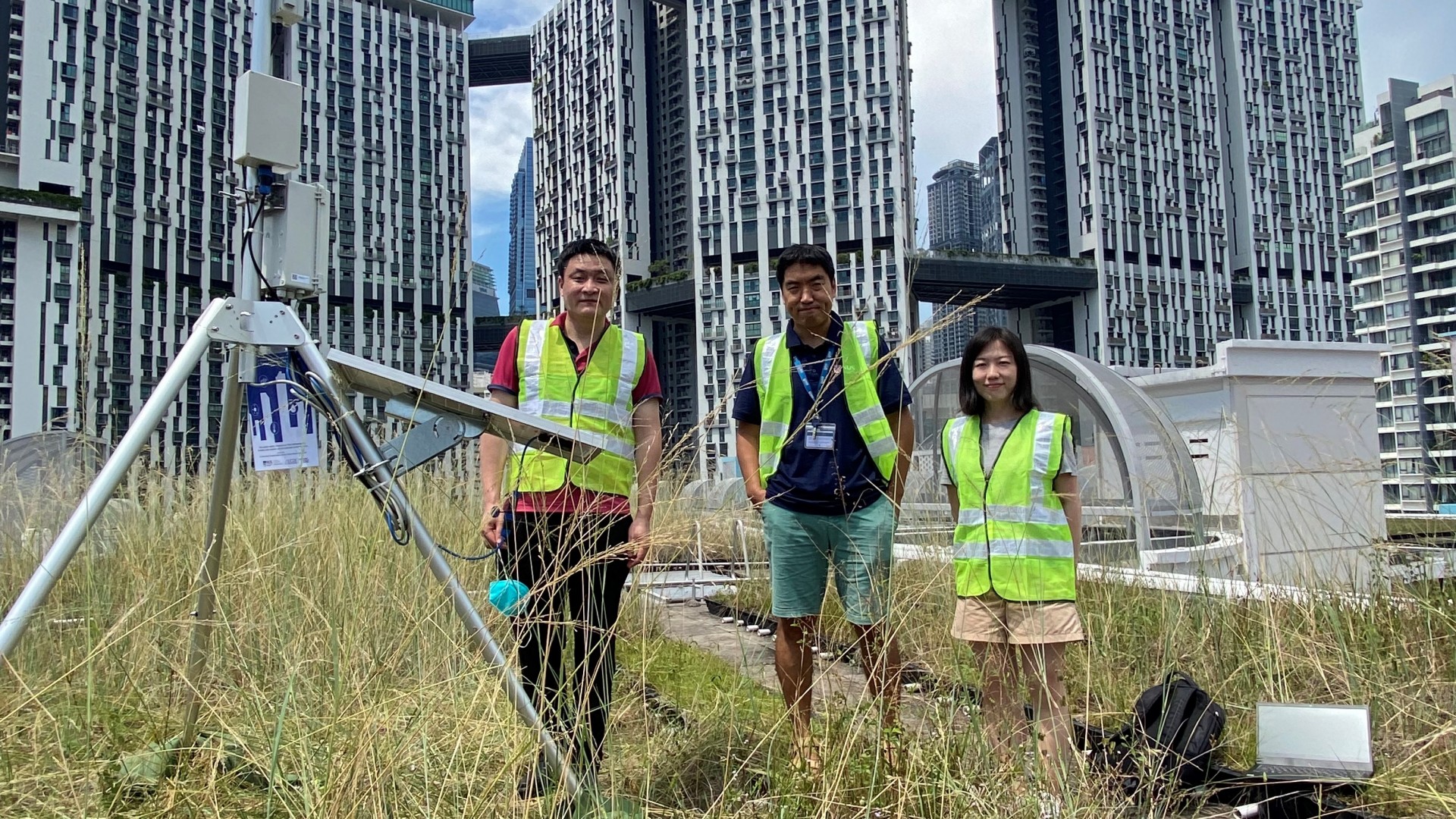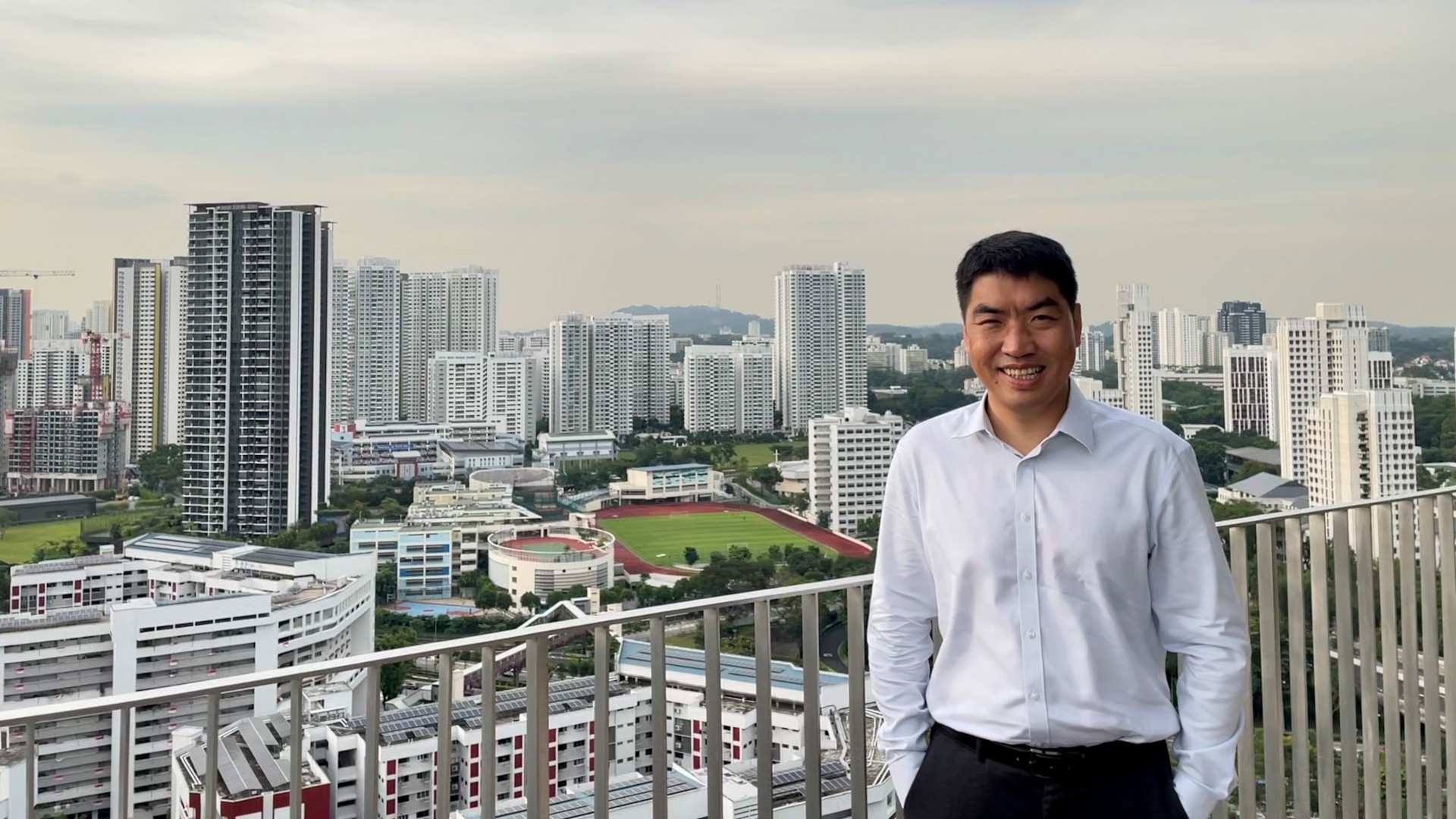Combatting climate change with efficient urban planning and design

In this series, NUS News profiles the University’s Presidential Young Professors who are at the forefront of their research fields, turning creative ideas into important innovations that make the world better.
“I was at the barber getting a haircut,” Assistant Professor Yuan Chao said as he looked back on the time in 2019 when he got the news from his department that he had been awarded with the Presidential Young Professorship.
Asst Prof Yuan, who is from the Department of Architecture under the NUS College of Design and Environment, began his journey at NUS in 2016. His research looks at urban planning and design to build cities that are sustainable and resilient to the effects of climate change. Together with his research team, they use numerical simulation and field measurements to study the impact of building design and urban planning on the microclimate.
His team also develops user-friendly urban planning tools, such as a Geographic Information System (GIS) tool to estimate the impact of urban planning on anthropogenic heat dispersion – heat released as a result of human activities.
One of Asst Prof Yuan’s most recent projects focuses on the coupling effects of climate change and urbanisation. In that project, his team demonstrated the importance of building design on the microclimate in the Tanjong Pagar area. Drawing comparison between two neighbouring communities with different building forms, they found that different building forms create very different microclimates, particularly the surrounding air temperature and wind flow.
Building resilience now, for a sustainable future
Asst Prof Yuan’s research looks at climate-sensitive urban planning and design of sustainable and resilient cities.
The concept of sustainable cities incorporates practise and implementation of urban planning and design of living environments to help mitigate urban heat, and at the same time reduce the carbon footprint of the city, which is essential in reversing the effects of climate change for future generations.
“When I was a student, we talked about sustainability to ensure that there are enough resources for the next generation. But now, we work on climate resilience, which is for the current generation, which highlights the urgency to tackle current climate issues,” said Asst Prof Yuan, emphasising the importance of building climate resilient cities against the damaging effects of climate change.
He shared that urban planning and design plays an important part in building climate-resilient cities, and requires all-encompassing strategies at multi-temporal and spatial scales. “Long-term climate issues such as rising global temperatures caused by climate change could increase the intensity of short-term climate issues such as urban heat island effect caused by urbanisation,” said Asst Prof Yuan.
He hopes that through his research, he can debunk the misconception that the same solutions can be applied to both climate change and climate issues caused by urbanisation, when in fact they should be tackled as two entities that require different solutions.
“Many people focus on combatting climate change, but they often neglect the impact of urbanisation. As buildings are getting taller and cities become denser, we need to rethink our living environment and look at the joint effect of urbanisation and climate change,” said Asst Prof Yuan.
“Another misconception is that we need to decrease urban density to achieve a better living environment. But through better building design and planning, we can actually increase the density and still achieve better living environments that are sustainable and resilient against the effects of climate change,” he added.
Aside from scientific work, like climate sensing and modelling, Asst Prof Yuan’s role as an architect looks at the implementation of these scientific outputs into models that can provide useful information for urban planners and building designers to understand how the microclimate, such as air pollutant dispersion and air temperature, are affected by urban planning and design, especially in high-density urban areas like Singapore.
Asst Prof Yuan’s research aligns with NUS’ key research area of Sustainability and Urban Solutions and the domain in Singapore’s Research, Innovation and Enterprise 2025 master plan that focuses on Urban Solutions and Sustainability.
Motivation to keep going
With various indoor plants lining his office window at SDE1, Asst Prof Yuan remembers his time as a PhD student in Hong Kong. He recalled a “Eureka!” moment he experienced while contemplating his research question.
“I was on the way home, waiting on the platform at my university’s train station when an idea suddenly came to mind out of nowhere to develop a solution for my research question,” said Asst Prof Yuan. This idea eventually became the main part of Asst Prof Yuan’s PhD thesis which focused on the impact of urban surfaces on outdoor natural ventilation. While others may consider this luck, but this moment of epiphany was the result of long hours of hard work and preparation that Asst Prof Yuan had put in.
Asst Prof Yuan’s inspiration also stemmed from his PhD supervisor Professor Edward Ng, who is currently teaching at the Chinese University of Hong Kong. Prof Ng had instilled in him a sense of responsibility when conducting research: doing research is not solely for publishing papers or citations; research outcomes should improve people’s lives. This philosophy motivated Asst Prof Yuan to continue in this path of research to help build climate-sensitive urban cities.
When asked to cite a special learning moment with his supervisor, Asst Prof Yuan recalled a late evening discussion where Prof Ng questioned him about the evidence behind his suggested planning guideline.
“He said that if we suggest land use density to be 4.3, others may ask why not 4.4, since one decimal point decrease in land use density translates into very high costs. It is about the balance between new development and environmental quality. That is why we need to provide scientific evidence to support implementation decisions. It felt like I was not just working with him; I was also fighting climate change together with him,” Asst Prof Yuan reminisced.
Inspiring the next generation
Now, with his own group of PhD students and research fellows in tow, Asst Prof Yuan hopes to inspire them to persevere in their academic research in this field, and ultimately, to develop sufficient expertise to contribute towards building climate-resilient and sustainable urban cities.
“I hope they believe that immediate actions on climate change are needed, and urban planning and design are crucial for mitigating climate issues and improving people’s lives. It’s only when the students think it’s important and necessary, will they invest their energy and time in this topic, just like how my supervisor had inspired me,” said Asst Prof Yuan.
This passionate educator also firmly believes that one should not allow his background to define his future. Asst Prof Yuan received his undergraduate degree from an ordinary university, but through perseverance, he carved out a remarkable academic career in NUS and other prestigious institutions. He hopes that his story will inspire his students to keep going despite the difficulties and rigour of academic life.
More Proof of Passion stories here.
The NUS Presidential Young Professorship (PYP) scheme supports talented young academics with excellent research track records in advancing their cutting-edge research. More information about the PYP scheme is available here.






